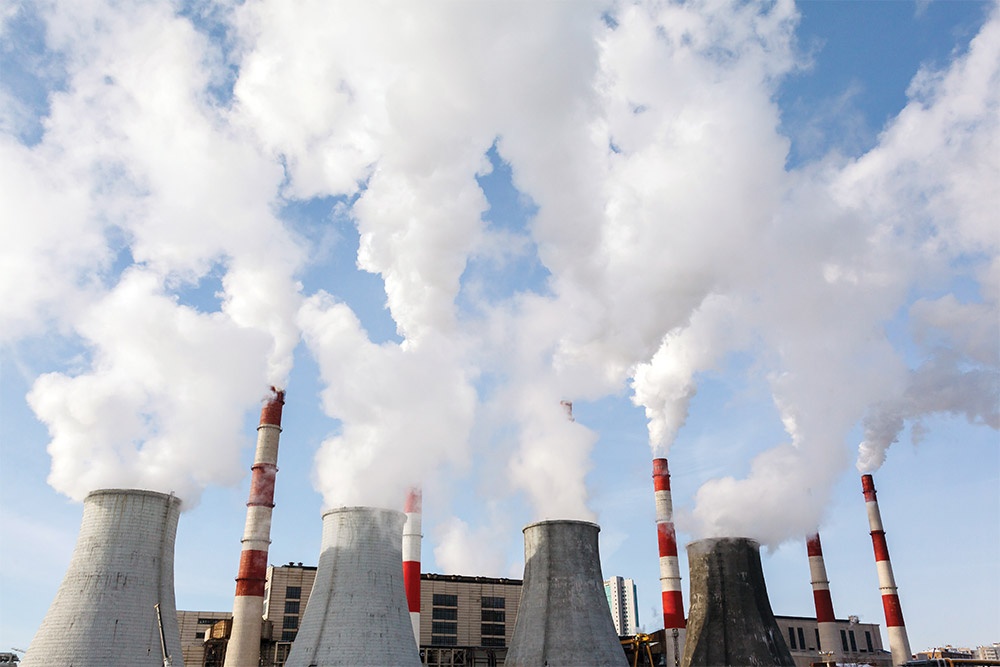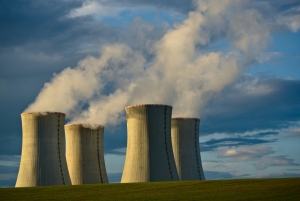Research intensifies on nuclear question
The 13th Party Central Committee (PCC) convened its plenum last week in Hanoi, discussing the resumption of nuclear initiatives.
“The PCC reached a consensus on a plan to resume the development of the Ninh Thuan nuclear power project and to continue researching a nuclear programme in Vietnam in order to firmly ensure the national energy security, meet socioeconomic development goals, and strengthen the scientific and technology strength and sustainable development of the country,” said a plenum statement.
The PCC assigned the Politburo to direct relevant agencies and localities to study and formulate a plan to develop nuclear power in Vietnam. In the short term, it is necessary to continue research on the Ninh Thuan plant and report to authorised agencies to consider and determine, it added.
 |
| Previous nuclear power plans were put on hold several years ago, Photo: Shutterstock |
The National Assembly (NA) last week also adopted the revised Law on Electricity, which embraces regulations on nuclear development.
Clause 14 of Article 5 states that such planning is an integral and synchronous part of the national power development planning to ensure the goal of electricity supply security.
“A nuclear power project is an important one related to national security,” the clause read. “Investment, construction, operation, and termination of operations, and safety assurance of nuclear plants, must comply with the provisions of the Law on Atomic Energy and other relevant legal provisions.”
Such projects must use modern, verified technology to ensure the highest safety. Depending on the socioeconomic situation of each period of time and of specific projects, the prime minister shall prescribe specific mechanisms to ensure effective investment, construction, and operation of these plants, the clause adds.
In 2016, the NA cancelled construction of the Ninh Thuan nuclear project, with pre-feasibility reports already completed. The scheme was first passed in 2009, with two plants located in Thuan Nam district covering more than 480 hectares over land and sea. Each plant was to have two turbines with a total combined capacity of 2,000MW.
While Ninh Thuan 1 was set to be built by a subsidiary of Russia’s Rosatom State Atomic Energy Corporation, Ninh Thuan 2 was aimed to be constructed by International Nuclear Energy Development of Japan Co., Ltd, comprising a consortium of 13 Japanese companies.
The two plants were set to be owned and operated by Vietnam Electricity.
Given its limited budget at the time, Vietnam instead was required to focus its resources into building key infrastructure projects of national importance, such as Long Thanh International Airport, the north-south high-speed railway and roads, and a national coastal road, which will cost tens of billions of US dollars.
In a report sent to the government in 2022, the National Assembly Economic Committee (NAEC) suggested that it continue temporarily keeping the planning for locations that were earmarked for the construction of the Ninh Thuan 1 and 2 power plants, until the authorised body, or the NA, provides an official decision on this issue.
One of the reasons behind the committee’s recommendation on restarting development was that this type of energy would help the country ensure an additional source of electricity, especially in the current context that Vietnam was forecast to suffer from grave shortages of power over the next decade.
The NA’s cancellation of the project construction disappointed Russian developer Rosatom. During 2011-2016, Rosatom spent millions of US dollars on surveys and studies, and organising field trips and workshops for Ninh Thuan 1, as well as establishing a large working team in Vietnam.
“The decision to build the plant or not depends on the NA. But we want to continue this project and are awaiting the final decision from the legislature,” said Andrey Stankevich, representative of Rosatom in Vietnam, after the venture was first put on hold.
During talks between the leaders of both countries, the Russian side stated that it would support Vietnam to build a scientific and nuclear technology institute in the future.
Under a joint statement on a vision for the comprehensive partnership between Vietnam and Russia, released in 2021, both nations agreed to “strengthen bilateral cooperation in using nuclear energy for peace, first and foremost within their project to construct a centre for nuclear scientific and technological research in Vietnam, and continuing to train Vietnamese students at Russia’s universities” under relevant majors.
“If Vietnam resumes its plan on nuclear energy development, Russia will be considered for priority in this industry,” added the statement.
While the agreement for Ninh Thuan 1 is currently classed as invalid, the Vietnam-Japan agreement on developing the Ninh Thuan 2 plant remains valid. “At meetings and contacts of all levels, the Japanese side still proposes that if Vietnam resumes its nuclear energy programme, the country considers Japan a prioritised partner,” said the NAEC.
Under the Ministry of Industry and Trade’s preliminary calculation on electricity load in 2045, assuming GDP growth of 10 per cent in the period 2030-2045 when efficiency of electricity use is expected to be better thanks to new standards applied, electricity growth will reach an average of about 6 per cent a year.
Electricity demand will be about 20 per cent higher than the forecast in Vietnam’s Power Development Plan VIII, reaching 1.2 trillion kWh in 2045 compared to the one trillion kWh forecast of the plan. The peak capacity of the national power grid system in 2045 is estimated to hit 213GW, as compared to the plan’s forecast of 180GW.
 | Vietnam eyes nuclear revival to bolster energy security Vietnam is considering restarting its nuclear power programme to ensure a stable energy supply as it accelerates renewable energy adoption and targets net-zero emissions by 2050. |
What the stars mean:
★ Poor ★ ★ Promising ★★★ Good ★★★★ Very good ★★★★★ Exceptional
 Tag:
Tag:
Related Contents
Latest News
More News
- Trung Nam-Sideros River consortium wins bid for LNG venture (January 30, 2026 | 11:16)
- Vietnam moves towards market-based fuel management with E10 rollout (January 30, 2026 | 11:10)
- Envision Energy, REE Group partner on 128MW wind projects (January 30, 2026 | 10:58)
- Vingroup consults on carbon credits for electric vehicle charging network (January 28, 2026 | 11:04)
- Bac Ai Pumped Storage Hydropower Plant to enter peak construction phase (January 27, 2026 | 08:00)
- ASEAN could scale up sustainable aviation fuel by 2050 (January 24, 2026 | 10:19)
- 64,000 hectares of sea allocated for offshore wind surveys (January 22, 2026 | 20:23)
- EVN secures financing for Quang Trach II LNG power plant (January 17, 2026 | 15:55)
- PC1 teams up with DENZAI on regional wind projects (January 16, 2026 | 21:18)
- Innovation and ESG practices drive green transition in the digital era (January 16, 2026 | 16:51)






















 Mobile Version
Mobile Version